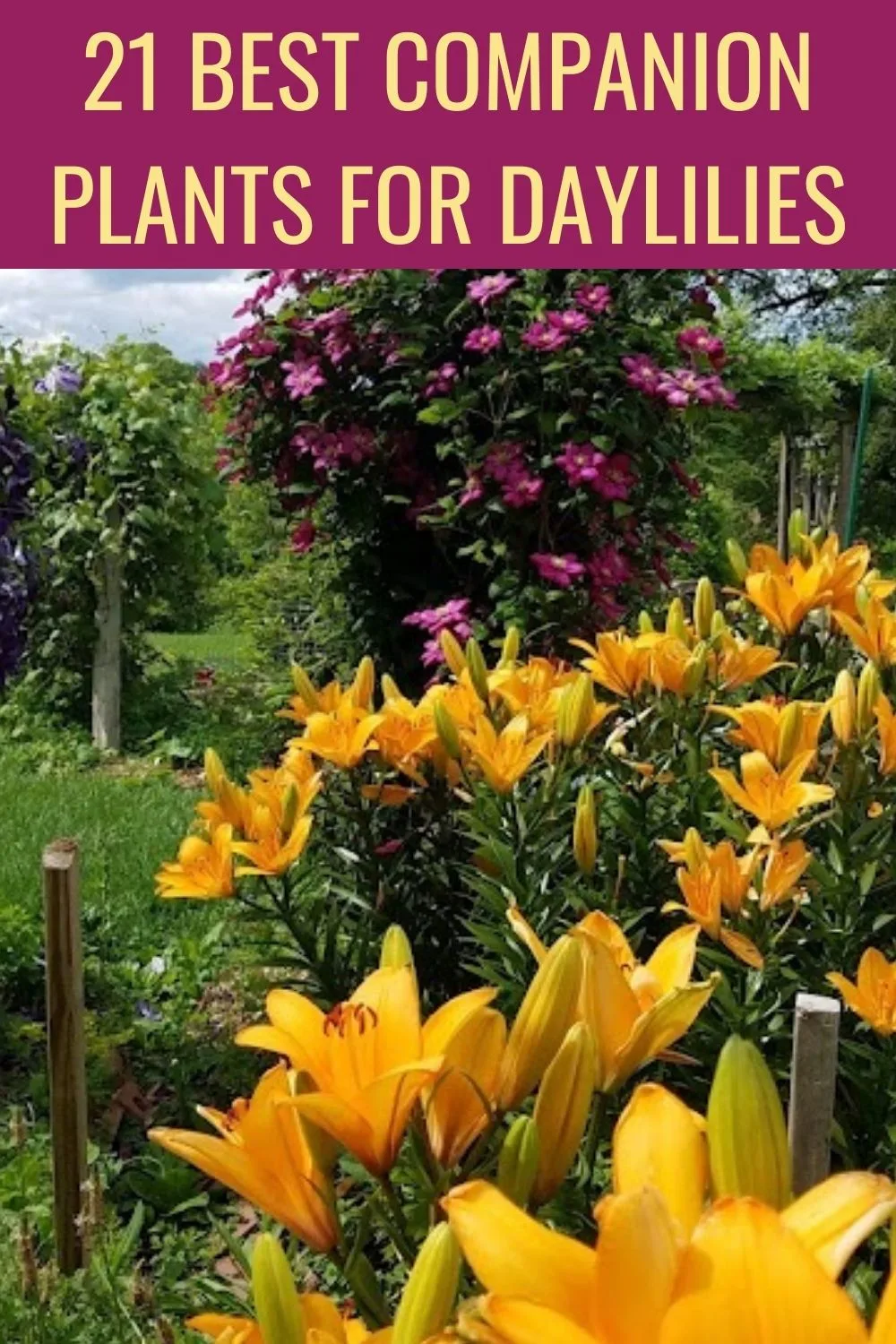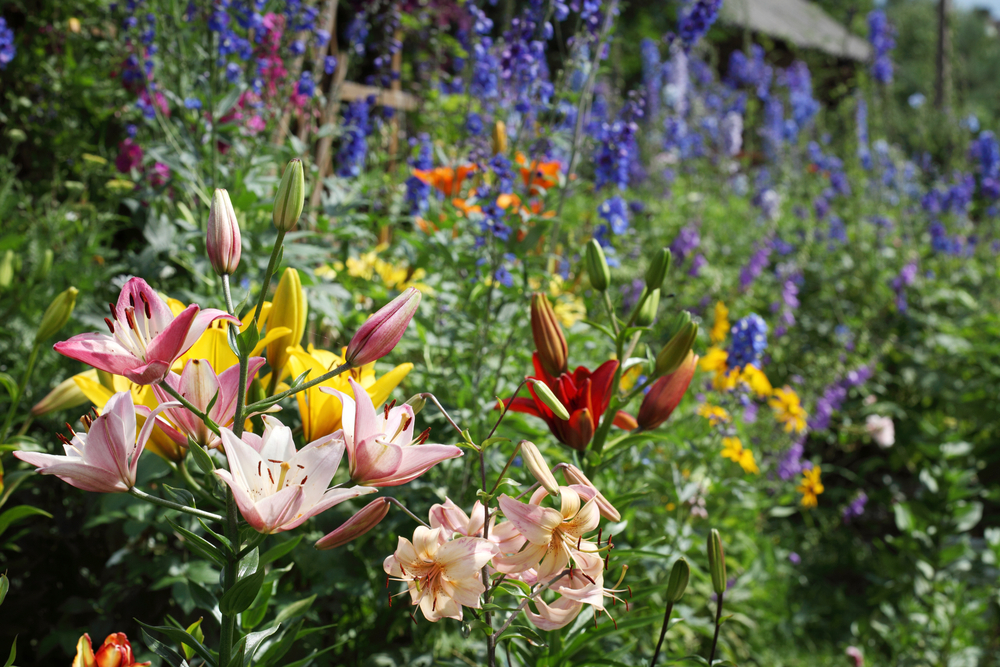Amazing Companion Plants For Your Asiatic Lilies
Amazing Companion Plants for Your Asiatic Lilies
Asiatic lilies are a popular choice for gardeners because of their beautiful flowers and relatively easy care. However, even the most beautiful lilies can look a bit plain if they're not surrounded by the right companion plants.
In this blog post, we'll discuss some of the best companion plants for Asiatic lilies. We'll cover a variety of plants, including annuals, perennials, and shrubs. We'll also discuss some of the factors to consider when choosing companion plants, such as the size of the plants, their color, and their blooming season.
So, whether you're just starting out with gardening or you're looking to add some new plants to your existing garden, read on for some inspiration!
## Factors to Consider When Choosing Companion Plants for Asiatic Lilies
There are a few factors to consider when choosing companion plants for Asiatic lilies. These include:
- Size: Asiatic lilies come in a variety of sizes, so it's important to choose companion plants that are the same size or smaller. If you plant too large of a companion plant, it will dwarf the lilies.
- Color: Asiatic lilies come in a variety of colors, so you can choose companion plants that complement or contrast the colors of the lilies. For example, if you have white lilies, you could plant companion plants with bright colors, such as red or orange.
- Blooming season: Asiatic lilies bloom in the summer, so you'll want to choose companion plants that bloom at the same time or later in the season. This will help to extend the bloom time of your garden.
- Sunlight: Asiatic lilies need full sun, so you'll want to choose companion plants that also prefer full sun.
- Soil type: Asiatic lilies prefer well-drained soil, so you'll want to choose companion plants that have similar soil requirements.
## Some Great Companion Plants for Asiatic Lilies
Now that you know what to look for in companion plants, here are a few of our favorites:
- Annuals:
- Cornflowers (Centaurea cyanus)
- Forget-me-nots (Myosotis sylvatica)
- Sweet alyssum (Lobularia maritima)
- Bachelor's buttons (Centaurea cyanus)
- Zinnias (Zinnia elegans)
- Perennials:
- Daylilies (Hemerocallis)
- Hostas (Hosta)
- Iris (Iris)
- Peonies (Paeonia)
- Shasta daisies (Leucanthemum x superbum)
- Shrubbery:
- Butterfly bush (Buddleja davidii)
- Lilac (Syringa)
- Smokebush (Cotinus coggygria)
- Weigela (Weigela)
- Spirea (Spiraea)
## Conclusion
These are just a few of the many great companion plants for Asiatic lilies. With a little planning, you can create a beautiful and harmonious garden that will bloom all summer long.
So, what are you waiting for? Start planning your garden today!
Asian lilies are a beautiful addition to any garden, but they can look even better when planted with companion plants. The right companion plants can help to accentuate the beauty of the lilies, extend their flowering season, and deter pests.
Some good companion plants for Asiatic lilies include:
- Veronica. This low-growing perennial has delicate blue flowers that bloom in early summer. It's a great choice for adding height and interest to the front of a border, and it won't shade the lilies. Gardenia Inspiration
- Artemisia. This silver-leaved shrub or perennial provides a striking contrast to the bright colors of the lilies. It's also deer-resistant, so you can be sure your lilies will be safe from hungry animals.
- Cornflower. This annual plant has cheerful blue or pink flowers that bloom in late spring and early summer. It's a great choice for filling in empty spaces in a border, and it will attract butterflies and other pollinators to your garden.
- Daylily. This perennial plant has long-lasting flowers that bloom in a variety of colors throughout the summer. It's a good choice for planting in front of lilies, as it will help to hide the dying foliage of the lilies after they have finished blooming.
For more information about companion planting with Asiatic lilies, please visit Gardenia Inspiration.
FAQ of asiatic lily companion plants
- What are good companion plants for Asiatic lilies?
Asiatic lilies are relatively easy to care for and can be grown in a variety of settings. However, there are some companion plants that can help to improve their growth and appearance. Some good companion plants for Asiatic lilies include:
* Daylilies: Daylilies are another type of flowering bulb that blooms in the summer. They are similar in size and shape to Asiatic lilies, and they can be planted together to create a colorful display.
* Hostas: Hostas are shade-loving plants that can help to provide some much-needed shade for Asiatic lilies. They also have attractive foliage that can help to fill in the spaces between the lilies.
* Ferns: Ferns are another type of shade-loving plant that can be a good companion for Asiatic lilies. They have delicate foliage that can help to add some interest to the garden.
* Yuccas: Yuccas are drought-tolerant plants that can help to add some height and structure to a garden. They can be planted in front of Asiatic lilies to help to hide their bulb bases.
* Shasta daisies: Shasta daisies are a type of daisy that blooms in the summer. They are relatively low-maintenance and can help to add some color to a garden.
- How far apart should Asiatic lilies be planted?
Asiatic lilies should be planted about 6 to 8 inches apart. This will give them enough space to grow and spread. If you are planting them in a row, make sure to leave about 18 inches between rows.
- What type of soil do Asiatic lilies need?
Asiatic lilies prefer well-drained soil that is rich in organic matter. The soil pH should be between 6.0 and 7.0. If your soil is not well-drained, you can improve it by adding compost or sand.
- When should Asiatic lilies be fertilized?
Asiatic lilies should be fertilized once in the spring, when the buds first appear. You can use a balanced fertilizer, such as 10-10-10. You can also fertilize them again in the summer, but be sure to use a fertilizer that is lower in nitrogen.
- How do I protect Asiatic lilies from pests and diseases?
The most common pests that attack Asiatic lilies are aphids, slugs, and snails. You can control these pests by using insecticidal soap or neem oil. Asiatic lilies are also susceptible to a number of diseases, such as lily leaf spot and lily rust. You can prevent these diseases by planting your lilies in a sunny location with well-drained soil. You should also remove any infected leaves or plants immediately.
Image of asiatic lily companion plants
- Daylilies are a good companion plant for Asiatic lilies because they bloom at the same time and have similar growing conditions. They also come in a wide variety of colors, so you can mix and match them to create a beautiful flowerbed.

- Hostas are another good choice for companion plants for Asiatic lilies. They provide a lush, green backdrop for the lilies' flowers and help to suppress weeds. Hostas also come in a variety of colors, so you can choose ones that complement the colors of your lilies.

- Lavender is a fragrant herb that can be planted near Asiatic lilies to attract pollinators. Lavender also helps to deter pests, such as aphids and Japanese beetles.

- Shasta daisies are a type of daisy that blooms in the spring and summer. They are similar in size and color to Asiatic lilies, so they can be planted together to create a cohesive look.

- Astilbe is a shade-loving perennial that blooms in the summer. It has delicate, fern-like foliage and clusters of pink, white, or purple flowers. Astilbe can help to add interest to a shady area where Asiatic lilies are planted.

Post a Comment for " Amazing Companion Plants For Your Asiatic Lilies"